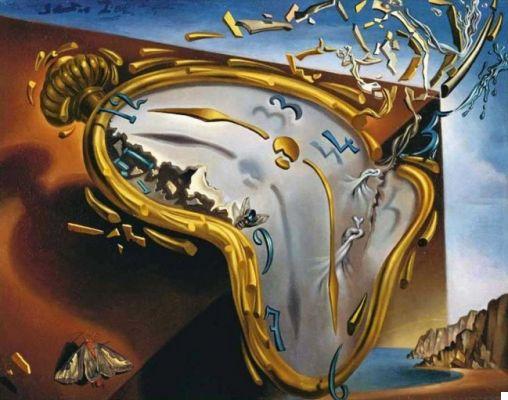
One of the main methods to manage time optimally and increase your productivity consists in think on "paper". Creating a successful business is a bit like building a house: you visualize ideas, yes transcribe on paper and then they put themselves into practice.
The most common mistake that many make is to operate from thought and not from documents. But also to build a productive day you need to put your thoughts on paper. Thought is something too transient and nuanced, and if you don't fix it, it's not much use. Ideas often escape us; therefore we must try to restrain them in some way.
Writing well almost means thinking well, and from here it takes little to get to do well.
Thomas Mann
Managing time on "paper": 4 methods to increase your productivity
Thinking on paper does not simply mean setting up a to-do list. There are 4 methods to plan your life and speed up your own progress on the way to wealth and happiness.
# 1. Manage time with a "diary"
I diari am exceptional and incomparable tools for those who intend to have a life full of successes. Through a diary, you can "capture" all the most valid information and the pearls of wisdom that are presented to you in the space of a day. Good ideas can arise practically anywhere and in any situation, and it is good practice to write them down. An incident you witness by chance, a note with a sentence in a window, listening to a conversation between two people on the subway or a flash of genius while driving are all examples of potential sources of daily inspiration. So try not to let the good ideas slip away! A particularly brilliant intuition could change your life, and it would be a real shame if you neglected it and let it go by the wayside. Always carry your diary with you: it will be your invaluable "idea catcher".
#2. Manage time with a "project book"
When you are very busy and dealing with many people, we have the feeling of to be "jugglers", having to manage in Contemporary more projects. These periods are not at all easy to deal with and the risk of "getting lost" and getting stressed is always lurking. One tool which can make us assume the control of the situation consists in create a sort of project book. Whether it is a ring binder or a series of documents on the computer to be grouped by folders, little changes. What matters is how the information is grouped together. If you work with people, create a separate section for each of them. In each section you should enter all the most relevant information about the corresponding person: its performance, its history, objectives, strengths, needs, a performance history and any news that may be useful for your collaboration. Based on your particular business or profession, you may need to create sections for each office, department or project. In any case, regardless of which is the reference element for the creation of the different sections, the point is to bring all the data together so that you can focus on it without wasting time looking for information scattered all over the place. A project book can also be useful for personal productivity: Finance, family projects, housework or maintenance chores are all things you could better organize with this approach.
# 3. Manage time with an "organizer"
When I speak of organizer or calendar I am not referring to a small space where you can limit yourself to noting appointments. In your ideal organizer, you should record your plans, expenses incurred, meeting results, telephone conversations, and to-do lists. You could use theorganizer also for make daily or weekly notes to keep in view, before reworking them and writing them down in your diary or project book.
# 4. Manage time with a "strategy"
Everyone knows that having a strategy can make a big difference at work, in sport and in any area of life. Yet how many people define and implement a strategy for their existence? Really few. Having a strategy means starting a day, a week or a month with a specific plan and a broader perspective. The ideal time to define your strategy is shortly before the period of interest. Plan your days the night before, your weeks the Sunday before and your months the last days of the previous month, trying to coordinate the objectives so that there is coherence and a "continuum" between the daily, weekly and monthly strategies.
I'll be honest with you: this whole organization will require a lot of discipline on your part. However, consider that this may be the most productive way to go manage your time. I really think it's worth it; do you agree?






